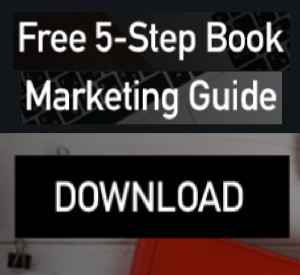Freelance writing is a popular career goal and for good reason—it’s a job that has been fully remote since way before the pandemic, so you can be sure that no one is going to try and push you back into an office. Freelancing in general also allows you to be your own boss and organize your own time, plus you’re able to decide for yourself when to charge more for your services.
But if you’re used to a traditional 9–5 job, the idea of moving to an independent contractor model of income can seem daunting. And if you aren’t already coming from the world of content and marketing writing, it can be confusing to figure out what kinds of services freelance writers can offer.
Luckily the best way to transition into a freelance writing career is also the easiest way: go slow, keeping specific goals that you feel confident pursuing in mind.
Narrow Down Your Goals
The first step is to get specific with your goals. You already know you want to be a freelance writer, but what kind of writing do you want to do?
Do you imagine yourself managing social media accounts, writing copy for Instagram posts, or coming up with scripts for video content? What about writing business-to-consumer marketing emails, product descriptions, landing page copy, or even ghostwriting?
If you have an idea of what kind of writing you want to do—maybe because you’ve already been doing it as a full-time employee—then you already have a road map. If you’re not sure what kind of writing you’d like to do, start by thinking in more direct terms. Long- or short-form content? Customer-facing or business-to-business copy? Do you even want to write for a brand, or would you rather write for an individual person? Do you want to write under your own byline in sponsored work instead of creative or journalistic work?
It’s OK if you’re not sure what you want to do. Just pick something that makes sense to you and go from there. It’ll always be easier to pivot once you have a foothold in the freelancing world.
Work Your Network
The fact that you want to make a career change doesn’t mean you have to start over completely. If you’re coming from the position of someone who’s been doing in-house writing and now wants to break out as a freelancer, your resume is relevant in pretty obvious ways. But pretty much any job, in any industry you’ve worked in, is going to need writers for something. Even if it’s very basic website copy that tells people what the company is—that’s something that someone wrote.
Assuming it wasn’t you, find whoever does the writing work for your past jobs. Are they freelancers themselves? Do they work for an agency? Click around on LinkedIn and see how they’ve built up their career; you can learn a lot from just looking at someone’s employment history. If you think any of their past work might be a good place for you to start—maybe they used to write for a big freelance agency—you can reach out to talk with them about their experience there and how to approach getting hired.
Finding someone who is a writer at a company you have a connection with is an easy opportunity to ask for advice. Just always remember to be respectful of the person’s time, and don’t expect them to be able to make this process easy and accessible for you in just one conversation. Unlike other more rigid career paths, the way a freelancer builds their career is unique to them, and there won’t be an exact blueprint for you to follow.
Start Small
There is some debate among freelancers about how to deal with clients who pay below market rates. It’s generally good practice not to take these kinds of jobs, mainly so that writers, as a group, can pressure the market to pay appropriate rates. But when you’re just starting out, your job options may be limited.
Spend some time in online freelance writing groups and see what other people say about this issue. Develop your own opinion so you can feel comfortable with how you approach your first few small jobs that you hope will lead to better work. Maybe you’re fine taking lower rates from smaller businesses that truly cannot offer more. Or maybe you put a time limit on how long you’ll work for a low-paying agency so you can gain experience and move on to greener, higher-paying pastures.
However you approach the ethical issue of low-paying jobs, know that you’ll be starting out with smaller jobs before you get the call to ghostwrite that celebrity memoir. And that’s a good thing! Even if you’ve been a professional writer for a long time, freelancing works differently. You’ll want to initially test the water with different kinds of content and clients so you can make your next steps accordingly.
It’s All Up to You
Compared to a more traditional career path, where you either start out in a specific type of role or work your way up at one specific company, moving into freelancing can feel overwhelming. But freelance work isn’t new. If you take it one step at a time, you’ll soon find your way to high-paying writing work where you make your own hours and are your own boss.
Chelsea Ennen is a writer living in Brooklyn with her husband and her dog. When not writing or reading, she is a fiber and textile artist who sews, knits, crochets, weaves, and spins.





